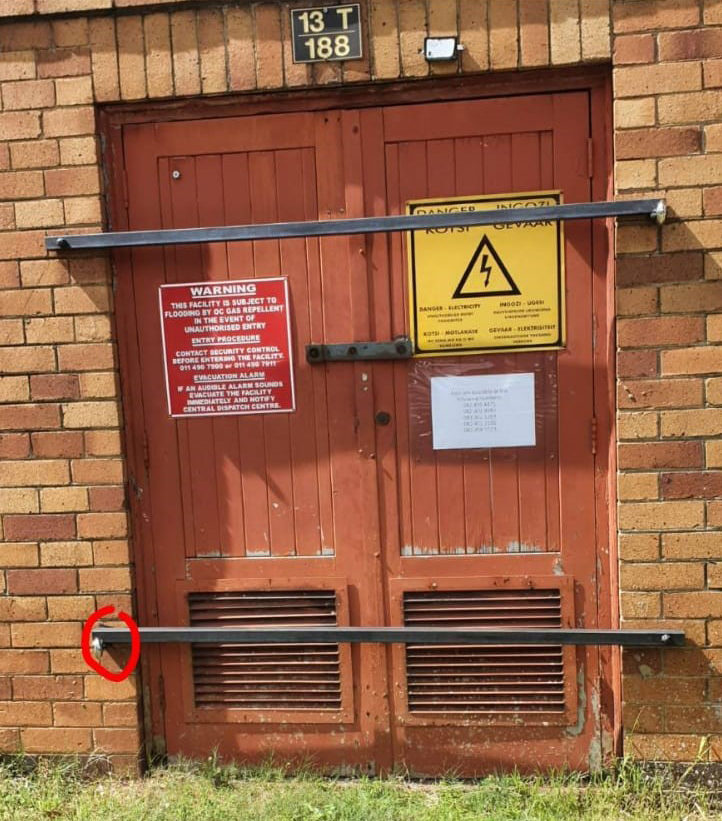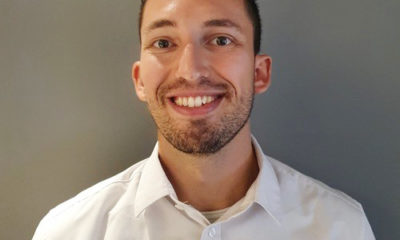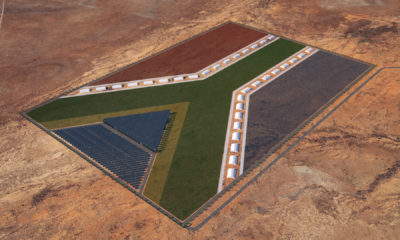
Featured Item

Community initiative lights way out of power cuts
It’s the quintessential South African problem – another power cut caused by stolen equipment and a night spent in darkness, muttering, maybe even posting on social media about how something needs to be done.
One man, Eitan Fine, decided actually to do something, and his concerted efforts have begun to make sweeping changes to the North Eastern suburbs of Johannesburg, proving what collaboration with city officials can achieve.
Fine, an electrician by profession, said as power cuts became more frequent, he decided he wanted to volunteer to help the community. It became clear that one of the causes of frequent cuts was theft at substations. In particular, so-called plugs and fuses were being targeted, the loss of which causes devasting effects.
While it’s believed that fuses are stolen because they contain a chemical used in certain drugs, the plugs, which link power across several substations, are usually stolen because they contain copper. These plugs, in fact, date from about 1917, says Fine, meaning that “if they get stolen, there is no replacement for them or City Power has to find replacements from other sites or storage”. While in the long-run it would be ideal for the infrastructure to be updated, at the moment, they still work, and therefore, the solution is to keep them safe.
The problem is that the substations haven’t been secured by officials for a number of reasons, thus making access easy for plundering. In particular, thieves would make use of load-shedding periods when streets were quiet and substations not live, to steal. This also often meant a delayed response as people weren’t sure about the reason for electricity not coming back on as scheduled.
In addition, because substations were easily accessible by anyone, “criminals would conduct a heist or robbery and then run into the substation to hide. With the police, we found knives, other weapons, and stolen articles.”
Indeed, many substations have been and continue to be used as living quarters by people in spite of obvious health and safety concerns. However, since the substations are city property and part of its infrastructure, little action could be taken until recently.
Fine is at pains to note that there have been many remarkable people working on this issue across residents’ associations, community policing forums, and security companies. Their efforts coalesced about a year ago, when a meeting was set up with City Power itself. “They were very open. Instead of just pointing fingers, we told them that we wanted to find a way that we could at least assist them. We worked out a solution.”
City Power agreed that residents around a specific substation could make private arrangements to lock the facilities as long as keys were held by a cluster of people who could be reached 24/7.
The next step was to get residents on board with the project, which requires them to share the costs of the security upgrade. This hasn’t always been easy, but quips Fine, “I do have the gift of nagging when I believe in something and when I see a problem, I will give my all to try and help.”
Once communities have raised funds, the sites are then secured professionally with brackets and various types of locking systems. Community security officials also help with patrols, keeping a watchful eye on the sites.
About 15 to 18 substations have been secured in this manner. Fine isn’t involved in his capacity as an electrician, and doesn’t make any profit. He’s simply happy to help each community with advice and support as to the best process to follow. He also runs a WhatsApp group called “Protect our Power” that allows for networking, collaboration, and awareness.
At its core, this work is about the commandment to love one’s neighbour, Fine says. “It’s about the broader community. We’re all in this together.”
While he understands people’s frustration that although they pay rates and taxes, services aren’t always provided adequately, this is the reality we face, he asserts.
“It’s unfortunate that this is the way it is. But if you look at organisations like the CSO, CAP, Hatzolah, the Zaka fire service, the people behind them took a stand, and look at what they built! We are a community.
“Now, we need your services. So, rather than being keyboard warriors, do something. Everyone is going through a lot of stress. If you can empower yourself to do one thing such as help to secure substations, you have achieved something positive that day.”
He says he hopes projects like the substation project are one step towards preventing the rise in emigration. “Crime and the devaluation of property are related. I want people to be able to live in South Africa, live in the community, go to shul, school, and be relaxed, not having to worry about not having power that day.”
The relationship with City Power has gone from strength to strength, and Fine says it’s a model for the future. “It’s not about pointing fingers. There’s always going to be some way to communicate with those officials in power and build a relationship. When we show we care, it motivates the council, and it show it cares back. We are helping each other as much as we can.”
Fine says he hopes to find a way to install alarms in the substations, as well as work with City Parks to help maintain the areas around them including the playparks that are often in the vicinity.
A committee member of the Highlands North Residence Association has praised Fine and the many others involved for their efforts. She says the connection forged with City Power has been inspiring and is now “built on trust”.
Tzipporah Berman, a resident involved in Fine’s project, says it has changed their lives significantly. “The most common time cables were getting stolen was a Friday afternoon because thieves needed money for the weekend. Then we were going into Shabbos, and had no electricity. It was really imperative that something was done. Now, we hope other areas will do the same.”










